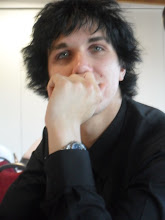Chronicling the lives and trends of a group of addicts, Trainspotting is a raw, deep and honest look at the pros, cons and horrors of abusiveness to addiction.
As Renton (Ewan McGregor) and Spud (Ewen Bremner) hurl down the street with the energy of a Duracell bunny it’s apparent that there’s something very powerful about Trainspotting. As the Iggy Pop’s ‘Lust for Life’ pounds through your ears it may be difficult to realise at first. Is it this iconic choice of soundtrack? Could it be the pain that you feel along with the actors, who gurn and gasp as they push their way through the streets of Edinburgh?
Or could it in fact be the startlingly stirring voiceover provided by Ewan McGregor? Yeah, that would be it, though it is important that you remember something. This is the 1996 Ewan McGregor. Before Star Wars, or Moulin Rouge! and it was well before The Island. This is Ewan McGregor when he had to dive into toilets, and dig bodies. This is Ewan McGregor who didn’t have the luxury of multi-million dollar deals or stunt doubles. This is Ewan McGregor who is only a stone’s throw from the drug addled character he’s playing, and above everything else that shows.
One of the many initial criticisms of Trainspotting has been that it seems to be promoting drug use and it doesn’t take long to see why. The film starts off startlingly realistically with Renton sneering that he wouldn’t do drugs if he didn’t enjoy it. With this, we learn at breakneck speed that the world of drug abuse that we’ve been taught about and steered away from is like any other addiction and that to an extent, we, the average viewer, are no better than these people. So light-hearted is the first quarter of the film, common sense seems to leave and it’s not made entirely open why drugs are considered bad in society. But the enjoyable caper that you settle comfortably into doesn’t last for long and soon it’s apparent that director Danny Boyle is showing the good and the bad; the Heaven and the Hell. Whilst watching Trainspotting you’re in junkie limbo.
Among the themes of drugs, there are others relating to everyone. A core idea is the Choose Life movement, a phrase repeated throughout the film to perfectly nauseating effect. “Choose life. Choose a job. Choose a career. Choose a family. Choose a fucking big television…” Both stark and hideously blunt, the truth about conformity in materialism soon sets in to make it apparent that ‘choosing life’ may well be exactly the opposite. On top of that, in case anybody is worried that they might not be able to relate to Renton’s drug issues, addiction on other levels is explored thoroughly. A commentary on how prescription pill popping is just as damning but seen as much less crude by society is but one.
Considering that Trainspotting isn’t quite an ensemble cast film, it’s surprising to what extent most of the main characters are explored. Before the end, qualities, problems, traits and secrets of just about all the major characters are exposed and examined. There is no character that could be accused of being a strict (or even slight) cliché.
Naturally, because Renton is an addict, you wouldn’t really trust him if he tried to tell you his life story in the pub and so frequently, he is played off as an unreliable narrator. There are numerous times that he exclaims that he will do something, usually get off the heroin, to no avail at all mostly because he simply hasn’t the power to do this. At around the 65 minute mark, you really come into a full opinion of who he is and how much control he does (or doesn’t) have over himself, his life and his addiction.
One of the main reasons Trainspotting excels at being such a disturbing film is that it doesn’t back down at the thought of having to push the envelope and employ some abstract ideas in order to truly get a message across. The most effective uses of these are without doubt when juxtaposition is used to take an innocent idea and put it in a horrifyingly grim environment. Not only does this create a spellbinding effect, but Boyle and his crew also raise the bar by taking advantage of these moments to create real suspense.
From a technical standpoint, the camerawork and cinematography are fluid, inventive and original. The music is interestingly diverse and always fitting.The story itself is nothing new but is written and executed in such a wild fashion that everything seems fresh rather than recycled. However, you can only go so far on recycled material and as the stakes are raised, the film starts to lose focus of what has throughout, felt like the most core theme of the film.Not drugs, not addiction, but friends. Despite the advertising and the views of the film-makers and the controversy the key idea of friends always being there for one another is what feels like the blood pumping throughout the body of this film to keep it moving and invigorated.
After all, with who else would you be able to ramble about the trivial knowledge you’ve garnered of James Bond over the years, shoot dogs with air rifles, recreate the legendary Beatles album walking across a road or refer to everything via your own personal favoured pop culture?
Trainspotting is a film for anyone who wants to take a trip to the dark side but also see the light that keeps people there. It’s a film for anyone who’s not afraid to cross the line. It’s a film for anyone who chooses life.
4/5
Tuesday, 29 May 2007
Subscribe to:
Comments (Atom)
